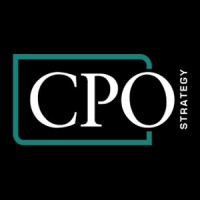Large enterprises are positioned to face unique challenges in current and upcoming fiscal, as the U.S. economy gears up for a projected slowdown in 2024 & 2025 as per the forecast given by IMF. US economy anticipated GDP growth of only 1.5%, inflation remains stubbornly above the Federal Reserve’s 2% target and the labour market is also giving signals of tightening. These macroeconomic parameters do not project an optimistic future outlook for today’s large corporations in USA. Such a economic landscape necessitates a strategic re-evaluation of cost management and operational efficiency within major corporations.
Digital procurement solutions are emerging as critical assets for large enterprises seeking to maintain profitability and strategic advantage by transforming the procurement function during the period of economic slowdown. These solutions enable the automation of procurement processes, the elimination of inefficiencies, and the enhancement of supply chain transparency. By leveraging advanced analytics and automation technologies, large organizations can achieve significant cost reductions, optimize supplier interactions, and make data-driven decisions that align with both immediate financial goals and long-term corporate strategies. This strategic integration not only addresses the immediate challenges of a decelerating economy but also prepares enterprises to capitalize on future market opportunities as economic conditions evolve.
Read more: Leveraging Generative AI to Unlock New Procurement Frontiers
Cost Reduction through Intelligent Procurement
In a slower economic growth environment, the pressure to reduce costs while maintaining service quality and operational agility intensifies. Traditional procurement methods, often characterized by manual processes and piecemeal approaches, are not only time-consuming but also susceptible to errors and inefficiencies. Digital procurement solutions address these challenges head-on by automating and streamlining procurement tasks. Automation in vendor selection processes, for instance, leverages AI algorithms to assess and choose suppliers based on comprehensive data analysis for pre-defined criteria such as pricing, quality, compliance, and delivery performance. This not only speeds up the procurement cycle but also ensures adherence to cost-efficiency and quality standards.
Another cost-saving feature of digital procurement is the ability to streamline purchasing processes. Integrated procurement platforms allow companies to standardize purchasing across departments, leading to bulk buying and improved negotiation leverage with suppliers. By consolidating purchases, companies can achieve economies of scale, resulting in lower prices and reduced transaction costs. Furthermore, digital tools provide a more transparent view of spend analytics, enabling procurement managers to identify cost-saving opportunities and budget leaks more effectively.
Enhancing Efficiency with Automation and Generative AI
Digital procurement systems leverage advanced technologies like Artificial Intelligence to enhance procurement operational efficiency. These systems can automate complex processes such as order processing, invoice matching, and payment approvals, which traditionally take considerable time and effort. Automation ensures these tasks are completed more quickly and accurately, freeing up employees to focus on more strategic tasks.
Watch On-Demand Webinar: Generative AI Revolution with Industry Leader
Read our blog: Multi-Agent Generative AI in Intake Management Solutions
Case studies across various industries highlight significant time savings and error reductions due to digital procurement.
For example, a multinational corporation implemented a digital procurement solution that automated its end-to-end procurement process, resulting in a 50% reduction in procurement cycle time and a 30% decrease in processing costs due to fewer errors and faster turnaround times.
Check out how Spirent Communications Streamlines Procurement & Account Payables Functions with Zycus
Risk Management through Advanced Analytics
One of the most critical advantages of digital procurement is the ability to manage risks more effectively. Advanced analytics and real-time data provided by digital procurement platforms offer deeper insights into supplier performance and market trends. This enables companies to anticipate and mitigate risks before they impact the supply chain.
For instance, analytics can help identify dependencies on single suppliers or geographic regions that might be susceptible to disruptions. Companies can use this information to develop contingency plans, such as diversifying their supplier base or setting up alternative supply chain routes, thereby reducing the risk of interruption.
Explore Zycus’ Supplier risk management Software powered by Generative AI that delivers real-time risk insights for end-to-end risk management
Moreover, digital procurement tools can monitor compliance and enforce corporate policies by ensuring that all transactions adhere to predefined standards and regulations. This reduces the risk of non-compliance, which can lead to financial penalties and damage to reputation.
A study by the Business Continuity Institute found that 25% of companies suffered from the bankruptcy or significant financial failure of a supplier, which impacted their operations and revenue.
Mitigating Supply Chain Disruptions
Digital procurement also plays a crucial role in mitigating supply chain disruptions. By integrating real-time tracking systems, enterprises can monitor their supply chain in real-time, identify potential delays or disruptions, and react swiftly to adjust their strategies. This capability is particularly crucial in a globalized economy where supply chains are highly complex and susceptible to a wide range of risks, from political unrest to natural disasters.
Read more on: Boost Efficiency with Generative AI in Supply Chain
Real-time data allows companies to make informed decisions quickly, minimizing the impact of disruptions on operations. For example, during the COVID-19 pandemic, companies with advanced digital procurement systems were able to respond more effectively to the sudden changes in supply and demand, adjusting orders and managing inventory more dynamically to meet shifting consumer needs.
On average, it can take about 41 days for a business to recover from a supply chain disruption, as per a study by the Harvard Business Review. This prolonged period can lead to substantial operational and financial challenges.
To navigate the challenges posed by a slower U.S. economy, enterprises can employ strategic frameworks that leverage digital procurement solutions to enhance efficiency, reduce costs, and manage risks effectively.
Strategic frameworks for Procurement transformation
Lean Procurement Methodology
Adapting lean principles to procurement processes helps eliminate waste and improve efficiency. Digital tools support lean procurement by automating routine tasks, maintaining inventory at optimal levels, and enhancing communication across the supply chain. Implementing lean procurement digitally can help businesses adjust more dynamically to changing economic conditions by streamlining processes and improving response times.
Innovation Adoption Curve
To stay competitive, companies must continually adopt new technologies and processes. The innovation adoption curve framework can guide businesses in implementing new digital procurement technologies at a pace that matches their operational readiness and market demands. This approach helps in managing the transition smoothly, ensuring that all stakeholders are aligned and the technological benefits are fully realized.
Strategic Sourcing Framework
This framework involves a systematic approach to procurement that emphasizes the continuous optimization of a company’s purchasing activities. It includes steps like supplier evaluation, market analysis, and contract management, all supported by digital tools. By utilizing data analytics, companies can identify the best suppliers, understand market trends, and negotiate better terms.
Achieving Excellence: The Hackett Group’s Story with Zycus Generative AI
Witness The Hackett Group’s journey toward achieving excellence in procurement. This video highlights their strategic use of Zycus Generative AI to overcome obstacles and set new benchmarks in the industry.See Their Journey – Click to Watch!
Digital Procurement Solutions in the Coming Years
As digital technologies evolve, the scope of digital procurement is poised to expand further. The integration of emerging technologies like blockchain for contract management and IoT for real-time tracking will continue to revolutionize procurement practices. These innovations promise not only to enhance the efficiency and effectiveness of procurement processes but also to transform them into strategic functions that drive business resilience and growth.
Conclusion
In conclusion, adapting to a slower economy requires a strategic rethinking of traditional business processes, with a significant focus on procurement. Digital procurement solutions are proving to be indispensable in helping businesses reduce costs, enhance operational efficiency, and manage risks effectively. By embracing these technologies, companies can better position themselves to navigate economic uncertainties and capitalize on new opportunities for sustainable growth.
Businesses should consider investing in upgrading their procurement technologies and processes to stay competitive in a challenging economic landscape. As we move forward, the role of digital procurement will only grow in importance, becoming a key differentiator in the global marketplace.
FAQs
1. What is process automation in procurement and why to use it?
Process automation in procurement refers to the use of technology to automate routine and repetitive tasks within the procurement process. This can include various stages such as vendor selection, purchase order creation, invoice processing, and payment execution. By implementing software and systems that handle these tasks, companies can streamline operations, reduce manual effort, and improve accuracy and speed.
2. What is Robotic Process Automation (RPA) in Procurement?
Robotic Process Automation (RPA) in procurement refers to the use of software robots, or “bots”, to automate repetitive and routine tasks typically performed by humans within the procurement department. RPA is designed to streamline procurement processes, reduce manual labor, and improve both efficiency and accuracy.
Research Report: Robotic Process Automation in Procurement What leaders need to know about?
Blog: RPA in Procure-to-Pay to Supercharge Your P2P Process
3. Where is Generative AI used in procurement?
Generative AI is increasingly being integrated into various aspects of procurement to enhance efficiency, accuracy, and strategic decision-making. Here are three key areas where Generative AI is used in procurement:
- Contract Management: Generative AI is employed to automate the creation, review, and management of contracts. It can generate draft contracts based on templates and specific input parameters, and it can also analyze existing contracts to identify key terms, compliance issues, or potential risks. This helps in ensuring that contracts are consistent, up-to-date, and aligned with organizational policies and external regulations.
- Demand Forecasting and Planning: Generative AI can analyze historical procurement data and external market trends to predict future demand for goods and services. This predictive capability allows procurement teams to optimize their ordering schedules, manage inventory more efficiently, and prepare for market changes that could affect supply and demand.
- Supplier Communications and Engagement: Generative AI facilitates improved communication with suppliers by automating routine interactions, such as order confirmations, status updates, and compliance checks. It can generate personalized communication based on the history and preferences of the supplier, which enhances relationship management and operational coordination. Read more
4. How can digital procurement solutions mitigate supply chain disruptions?
Digital procurement solutions incorporate real-time tracking systems that monitor the supply chain continuously, allowing companies to identify potential delays or disruptions quickly and respond proactively. This capability is essential for adjusting strategies dynamically and minimizing the impact of disruptions on operations.
5. What strategic frameworks can businesses employ to leverage digital procurement for better resilience in a slower economy?
Businesses can use strategic frameworks like Lean Procurement Methodology, which integrates digital tools to automate routine tasks and maintain optimal inventory levels. Additionally, the Strategic Sourcing Framework helps in systematically optimizing purchasing activities using data analytics to select the best suppliers and negotiate favorable terms.
Related Reads:
- A 5-Point Digital Procurement Checklist for your Company
- Five Precepts to Digital Procurement Transformation
- The Powerhouse of Production: A Guide to Direct Procurement in the Digital Age
- 2024 Source-to-Pay Trends Shaping Procurement
- White Paper: Harnessing the Power of Digital Transformation in Procurement for Enhanced Efficiency
- White Paper: Digital Destination: Charting Your Digital Procurement Journey
- Watch Video: Enhancing Supply Chain with Digital Procurement- A Strategic Guide
- White Paper: Digital Procurement Readiness: Incorporating RPA Payments




















